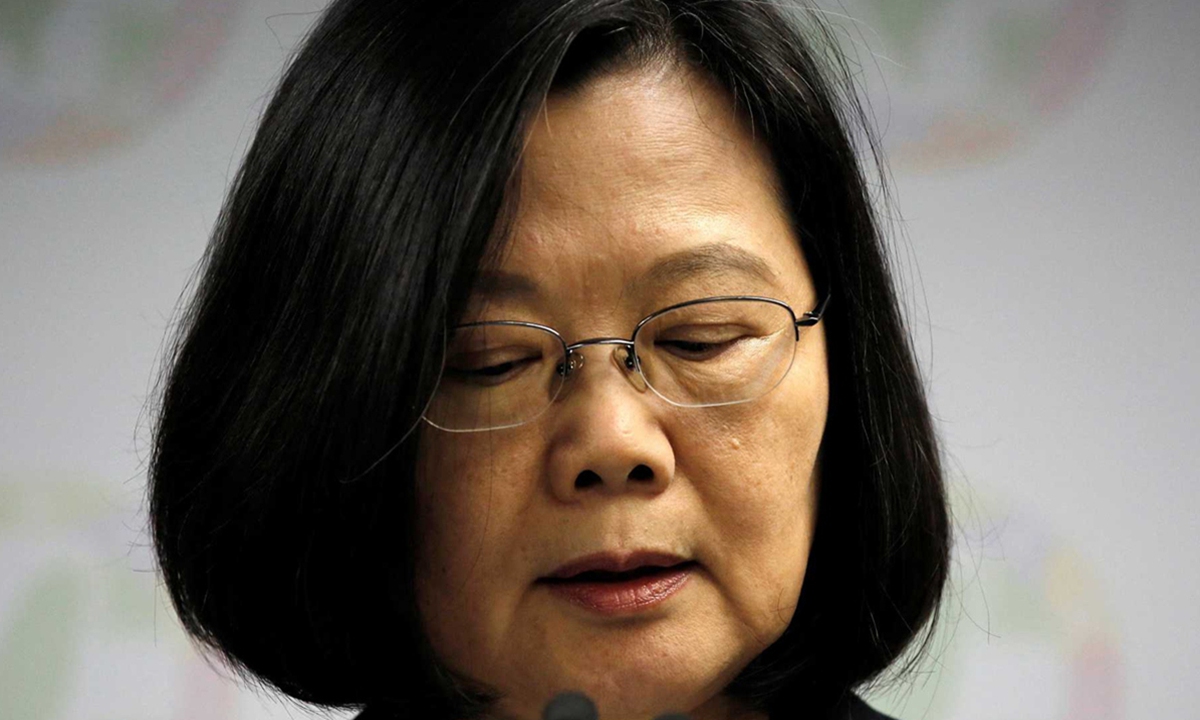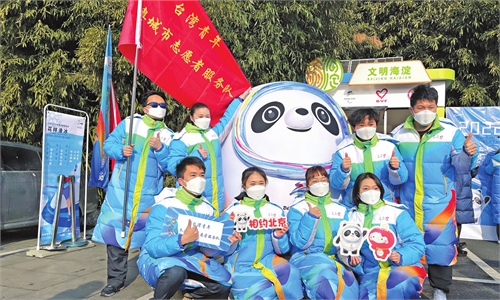
Tsai Ing-wen Photo:VCG
In a sudden move, Taiwan's Democratic Progressive Party (DPP) authority announced on Tuesday that it would relax a ban on food imports from five prefectures in Japan around the site of the 2011 Fukushima nuclear disaster. The "nuclear food," as Taiwan residents call it, finally got approved after being banned for more than 10 years and will soon enter dining tables of Taiwan residents. This is another betrayal of the Taiwan people's opinion and interests after the DPP authority gave a greenlight to US pork with ractopamine.
Taiwan leader Tsai Ing-wen made a speech and tried to mislead the public with so-called international standards. She claimed that it was not "nuclear food," but could not offer scientific proof and risk assessment. DPP politicians are good at playing with words. Some even changed "nuclear food" to "Fu food" to deceive the Taiwan people, as "Fu food" means sacred food for worship in Chinese culture. When the DPP authority gave the greenlight to US pork with ractopamine, it promised to label it, but did nothing in the end. The safety detection and supervision it promised is in name only. After all, the DPP authority cares little about the health and safety of the Taiwan public. What it cares is political interests and what the US and Japan think of it.
The forceful push to relax the ban on "nuclear food" is the political bargaining chip of the DPP with Japan. It has nothing to do with whether food from Fukushima has met safety standards. Even the DPP authority admitted that relaxing the ban may help win Japan's support for Taiwan's entry into the Comprehensive and Progressive Agreement for Trans-Pacific Partnership (CPTPP). The DPP authority has thought of every possible way to create waves for its entry and make calculations about the timing. It first renamed the "nuclear food" as "Fu food" to ease the Taiwan public's concern to create conditions to cater to Japan's demands. DPP politicians claimed that it is a critical time to seek the opportunity to enter the CPTPP, and there should be no delay for relaxing the ban.
For a long time, the Taiwan public attached great importance to whether to relax the ban on Fukushima nuclear disaster-related food. In the 2018 anti-nuclear food referendum, Taiwan people supported the existing ban with 7.79 million votes. The DPP used to oppose nuclear contamination. In 2016, the DPP central committee and 13 counties and cities ruled by the DPP issued a joint statement that expressed four principles of prohibiting nuclear food.
However, just like the DPP's attitude on the issue of ractopamine pork, the party strongly opposed it before assuming power, yet arbitrarily lifted the ban afterward. The lifting of the food import ban is making people on the island sigh again, and feel puzzled by the DPP's "floating scientific standards."
Japan's integrity on the Fukushima nuclear leak is very low. To evade responsibility, the Japanese government and Tokyo Electric Power Company have lied to and deceived the international community. There have been multiple reports revealing that key information over the matter was not transparent, or even falsified. In spite of strong opposition from its neighboring countries, Japan insists on dumping Fukushima nuclear wastewater into the ocean. How can Japan's guarantee on Fukushima food safety be reassuring? Japan peddles "safe food" from Fukushima and engages in political deals on scientific issues. Japan has repeatedly hinted, through its politicians, that it could help Taiwan island "integrate into the international community" after the latter lifts the ban on "nuclear food." The DPP authority has taken the hint and did not hesitate to belittle itself by sacrificing the well-being of the people on Taiwan island.
But can Japan really offer the DPP any real benefits? Although Japan has a say in CPTPP, the final decision on whether Taiwan island can join CPTPP requires the consent of all members. Previously, on the issue of the Diaoyu Islands, the DPP authority wanted to make a deal with Japan to gain fishing rights for the Taiwan island's fishermen, but Japan did not agree. Tokyo has no thought about "exchanging" anything with Taiwan island. To put it bluntly, Japan has to act according to which way the US wind blows and tries its best to take advantage of the Taiwan island. When the DPP sees Americans, its knees weaken. When it faces the Japanese, it automatically shrinks by half. The US and Japan are aware of the DPP's mentality and are taking the DPP under tight control.
There were already deals on US pork with ractopamine. Now, Fukushima food is on the list. The DPP authority has become more and more like a red-eyed political gambler. It no longer has any valuable belongings, so it didn't hesitate to lie to their wives, children and relatives as a chip for mortgage. The health and safety of the people on Taiwan island have become the political sacrifice of the DPP authority time and time again, which is deplorable.

